It's summer, and for movie-goers, that can only mean one thing. All this year's big blockbuster films are queued up and ready to go at the cinema, and we can look forward to massive new releases every week for the next few months. For film buffs, it's just like Christmas!
It isn't always such a happy time for the studios, though - especially the ones who have sunk tens of millions of dollars into their latest offering. Until their movies come out, and they see the box office takings from the first weekend, they can't know for sure they'll make money.
When a film studio spends big money on a film, and the film doesn't pay off as they imagined it would, it can mean major financial difficulties. For smaller studios who don't have the resources to cope with that kind of loss, it can be the end of the road.
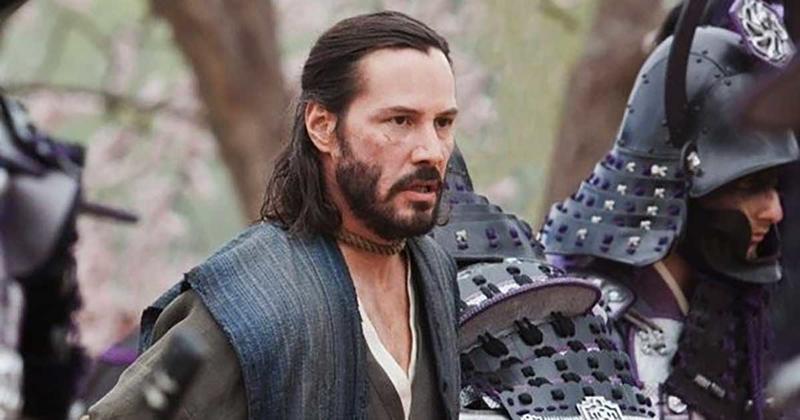
It's hard to think of a movie with a more appropriate name for things going wrong than 'The Fall of The Roman Empire.' When Rome fell all those years ago, it was the end of a great era, and so it proved to be the case for Samuel Bronston Productions, who made the unwise decision to bankroll this box office disaster in 1964. This movie had Sophia Loren, Alec Guinness, and Christopher Plummer. It would seem someone within the studio thought that with so much star power, they didn't need to worry about the plot. They were wrong.

'The Fall of The Roman Empire' was billed as a historical drama, and yet somehow, despite the scale and depth of the subject matter, the writers forgot to include any drama on screen. It bored its way to terrible reviews, and the public decided to give it a miss. Making the movie cost $19m in 1964. Adjusted for inflation, that would be around $164m today. It made back barely a quarter of that budget. Samuel Bronston Productions didn't have another $15m to cover the loss, and never made another film.
The marketing campaign for 'The Golden Compass' was so good that people still believe that it was a successful movie to this day, even though nobody knows anyone who went to see it. The truth is that it didn't do spectacularly badly at the box office - although it failed to meet expectations - it's just that the way New Line Cinema went about making the film was near-suicidal from a financial point of view. They needed $200m to make the movie according to their artistic vision. They didn't have it in cash, so they took the unusual step of selling off all their rights to their own film overseas.

That was great in the short term - it got them the money - but it meant that the only money they'd make back was from U.S. screenings. As it turned out, the international audience was much keener on it than the American audience. It made only $70m in the U.S., compared to $300m across the globe. Financially wounded by the poor decision, New Line was quickly snapped up by Warner Bros. at a discount price.
'Cleopatra,' starring Elizabeth Taylor and Richard Burton, is considered to be an iconic movie. Because it's iconic, people tend to assume that it must have been a runaway success, which is a mistake. Like 'The Golden Compass,' it didn't do badly, but so much money had been spent on it by the time it was released that it had virtually no chance of making a profit. That's despite the fact that the film almost marketed itself, thanks to the fascination of the press at the time around what may or may not have been going on between Burton and Taylor.

The big tragedy here is that much of the $44m budget - $330m today - was spent on scenes that ended up on the cutting room floor. The initial edit was six hours long, and so 20th Century Fox had to get the scissors out and cut away over forty minutes of very expensive footage. When it made less than was projected, Fox temporarily closed, laying off staff and cutting back on expenses wherever possible. They eventually reopened in a diminished state, taking years to make a full recovery.
I think we can call 'One from The Heart' a rush of blood to the head by the legendary director Francis Ford Coppola. He was still riding high on the success of 'Apocalypse Now' when he made this early 1980s musical romance, and he wanted to use the latest filmmaking innovations to bring his film to life. Because of that, the budget for the film shot up from an initial estimate of $8m to an extremely expensive $23m.
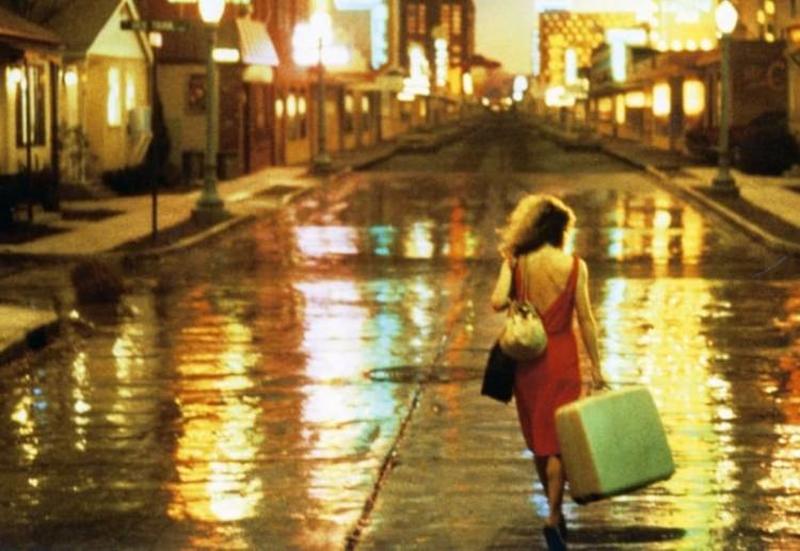
Perhaps nobody wanted to see Coppola make a romance film. Perhaps it just wasn't very good. Maybe it was a combination of both. Whatever the reason, hardly anyone was willing to part with their cash to come and see it. Against that inflated production cost, 'One from The Heart' didn't even make back $1m of the costs. Zoetrope Productions were completely crushed by the lost, and they were joined in bankruptcy by Coppola himself, who'd sunk his own money into making the film.
Common sense ought to tell you that making an animated movie is a much lower risk than forking out for a full live-action production. After all, you don't have actors to pay, or expensive locations to book out for overnight filming. All you need to cover is the costs of the animators and the scriptwriters, and you've got yourself a film. Unfortunately, common sense for most people doesn't take into account all the intricacies of making a movie. Look at 'Twice Upon A Time,' for example.

Released in 1983, 'Twice Upon A Time' came from the Ladd Company - the same studio that gave the world' Blade Runner.' 'Twice Upon A Time' was the film that was supposed to save them after a series of poor decisions had left them financially vulnerable, but they gave it such a low budget that they couldn't find a way to pay for much in the way of marketing. Nobody came to see it, because hardly anybody knew it existed. After that failure, the Ladd Company faced up to the inevitable, and folded.
Fox has historically always been - and still is - a massive name in the field of making movies. They got their fingers burned with 'Cleopatra,' but they stuck it out and came back to work. They release blockbuster films every year, but there's one kind of movie you'll never see them make again, and that's animations. We can thank the miserable performance of 'Titan A.E.' for that.

'Titan A.E.' may have been an animation, but it was a lavishly presented one, and featured both Matt Damon and Drew Barrymore in lead voice acting roles in the hope that the public would be attracted. They weren't. Fox spent $90m on 'Titan A.E.,' and only got $36m back. Their success elsewhere covered the cost of the losses, but the animation arm of Fox paid the price for the flop. It was permanently shut down.
Everybody knows about the classic 1990s movie 'Titanic,' starring Leonardo DiCaprio and Kate Winslet. What fewer people know is that various studios had tried to bring the story of the Titanic to the big screen before, and that most of those attempts proved to be as doomed as the vessel itself. 'Raise the Titanic' was ITC Entertainment's attempt to put a new spin on the legend of the ship, and came out only eight years before the Celine Dion-soundtracked epic.

From the start, the plot of the film sounded strange. Instead of focusing on the plight of the passengers, it revolved around an attempt to raise the stricken ship to access a precious mineral contained within the cargo - a mineral that would give supremacy to either the U.S. or Russia at the height of the Cold War. The Cold War was coming to an end, people weren't interested in this strange blend of reality and fiction, and barely $7m was made back against a budget of $40m. The studio was forced into the sale of its assets.
'City of Lies' stars Johnny Depp and Forest Whitaker. It tells the dramatic real-life story of the murder of rapper Notorious B.I.G. With a stellar cast, and a story that has fascinated the American media for years, how can it be the case that you've never heard of this film? There's a simple answer for that - it's never been released. The reasons for that depend on who you choose to believe about why it's being held back.

For a start, the production company Global Road, who made the film, were already in financial difficulty after an unsuccessful attempt to expand into China. They were bought out in 2018, which impacted the projected release date of the film. Then, there was a legal controversy and media scandal about Johnny Depp, which pushed back the release even further. In the meantime, Global Road's successor also went bankrupt, and the ownership of the film changed hands again. Millions of dollars went into shooting this movie, but it may never be released.
To a certain generation, Warner Bros. will always be 'that company who makes cartoons,' and for decades, that was an accurate description. It's not anymore. Back in 2003, Warner Bros. decided to get out of the animated films business for good, and it was 'Looney Tunes: Back in Action' that convinced them to do it. 'Looney Tunes' should have been a 'Greatest Hits' album for Warner, featuring all of their most famous animated characters, and giving them time to shine. Instead, it came across as a lazy and bored band trudging through their back catalog, and going through the motions.

The movie blended cartoons with live action footage, and even had the always-popular Brendan Fraser on screen. Even that wasn't enough. Despite the $80m production cost, and the high hopes for one of the biggest hits of the whole year, 'Looney Tunes: Back in Action' just didn't capture peoples' hearts the way that the characters used to back in the 1950s. It made $68m back, and Warner Bros. officially stopped making cartoons.
Even Universal Studios make mistakes sometimes. If inexperienced in a new job, you don't expect to be handed enormous financial responsibility on your first day. That's just common sense. It appears common sense was sorely lacking when Universal decided that first-time director Carl Rinsch could be trusted with the $175m budget of the Keanu Reeves-led film '47 Ronin.'

Hopelessly out of his depth, Rinsch was so bad at the job that Universal ultimately had to make the decision to fire him, and bring someone else in to try to patch up the damage. Donna Reeves did her best, but bringing Keanu Reeves in to shoot additional scenes to repair the narrative brought more expense, so bringing in $151m at the box office didn't do anything to plug the hole. Rinsch has never been involved in a major film project since.
There was a time when Carolco Pictures could do no wrong. They were the studio that brought us 'Field of Dreams,' 'Terminator 2,' and every single 'Rambo' movie. With all that success in their history - and more importantly, in their bank accounts - they ought to have been bulletproof against the cost of at least one commercial failure. Perhaps assuming that they couldn't sink was the reason they spent so much money on 'Cutthroat Island' in 1995.

Carolco spent $90m on what they thought would be the ultimate pirate adventure, and decided that stunt-casting Geena Davis as a pirate captain would seal the deal, apparently not bothering to check whether Davis could actually play the part convincingly. Spoiler: she couldn't. 'Generic' was one of the kinder words used to describe the film, which took barely $10m for an $80m loss. Carolco, which was simultaneously suffering further losses from the failure of 'Showgirls,' simply couldn't soak it all up. They were ruined.
We may currently feel like we live in a cinematic world of remakes, in which originality is dead, but remakes aren't a new idea. The Hammer Film Production company was at it as long ago as 1979, when they decided to give the old Alfred Hitchcock film 'The Lady Vanishes' a fresh lick of paint. In the process of doing so, they shifted the film's chronological setting, and also swapped out all of Hitchcock's trademark subtlety and suspense for all-out camp Hammer Horror.

Needless to say, as with almost every time someone else has tried to tamper with a Hitchcock classic, it was an unmitigated disaster. A prominent reviewer described it as 'witless and charmless,' and unfavorable comparisons were made to the original by anyone who'd seen both films. Ultimately, it wasn't the Lady who vanished, but Hammer Film Productions. They finally returned to making movies three decades later.
If you loved 'The Office' - and we imagine that covers most of the people reading this - you may have followed the careers of many of the central cast as they've attempted to translate their sitcom fame into a movie career. A number of them have been successful, but there are some notable exceptions. We don't know what persuaded Rainn Wilson to accept the lead role in 2008's 'The Rocker,' but we're certain it can't have been the script.

Making a musical is always a risky business - especially when it's not a musical in the 'Mamma Mia' or 'Chicago' sense of the world. 'School of Rock' managed to make it work for rock and roll music, but 'The Rocker' didn't. Ticking every 'rock stars behave badly' cliché ever written during its torturous 102-minute running time, it made back half of its $15m budget. Fox Atomic, which was only created to make 'cult' movies, was shut down for failing at its task.
You've probably never heard of this movie. That's a real shame, because Franchise Pictures spent a lot of money in trying to make sure that you did. The full cost of this odd horror flick rolled in at $80m, including the salary of Ben Kingsley, who rarely makes a bad film. He made an exception for 'A Sound of Thunder.' The plot of the film - that messing around with time travel can have dire consequences - had been told earlier and better by 'The Butterfly Effect.'

Even if viewers were able to sustain their suspension of disbelief through the poorly-thought-out time travel logic presented by the plot, the awful special effects shattered the illusion. By 2005, convincing digital effects were a necessity for any movie in the horror or sci-fi genre, and the attempts made here are laughably bad. When all was said and done, the movie made 10% of its budget back, and the only 'Sound of Thunder' Franchise Pictures heard was the shutters rolling down for good.
Despite the title of 'Rise of the Guardians,' this isn't a 'Guardians of the Galaxy' movie. If it had been, it wouldn't have been a colossal flop. Instead, what we find with 'Rise of the Guardians' is a rare case of DreamWorks Animations making a mistake. We almost think of them as the animators who can do no wrong - they have 'Kung Fu Panda' and 'Shrek' under their belt after all - but even the biggest companies can miss the mark on occasion, as they did with this in 2012.

The general consensus of the reviewers is that the film had too many central characters, too many points of focus, and just too much going on in general. It lacked direction, and at 97 minutes was simply too long to hold the attention of the young audience it was aimed at. DreamWorks recorded an $83m loss, and had to say goodbye to 25% of their staff to avoid having to cease trading.
Popular video games almost never translate into popular movies. Despite the huge number of failed films based on games, studios keep making the same mistake by trying to buck the trend, and it frequently ends up with box office devastation for the companies foolish enough to make them. One of the biggest money losers which stands as a testament to that fact is 'Final Fantasy: The Spirits Within.'

You could argue that the best time to release this movie had already been and gone by the time it was released. 'Final Fantasy VI' had been one of the biggest video games in the world, but that was years before the film came out in 2001. The audience had already moved on, and they weren't motivated to come back for this. From a $137 production cost, it made $85m back. From that point onwards, Square decided to keep their focus on making video games, and away from films.
The inclusion of 'Battlefield Earth' on this list shouldn't come as a surprise to anybody who knows their movies; it's one of the most high-profile box office flops of recent times. It's another one that put a hole in the boat of Franchise Pictures, who were destined to be ultimately scuppered by 'A Sound of Thunder.' Making the movie was a passion (or should that be vanity?) project for John Travolta, but the fact that every major studio had already passed on it should have been sufficient warning for Franchise. It wasn't.

Production on 'Battlefield Earth' ran massively over budget, to the point where even Franchise said, 'no more,' and Travolta was forced to put $5m in from his own pockets. He didn't get it back. By the time filming was called a wrap, it had attracted $73m in expenses, and it fell just shy of $30m at the box office. Franchise was probably already doomed by this failure, but 'A Sound of Thunder' was the nail in the coffin.
There are cynics out there who'll tell you that 'Star Wars' is the only good idea that George Lucas has ever had, and he spent the rest of his life bleeding the franchise dry for money after the success of the first film. We don't think that's completely fair, but the existence of stinkers like 'Howard the Duck' only serves to help the case against him.

According to Hollywood's rumor mill, Lucas made 'Howard the Duck' because he was in personal debt from the construction of his massive ranch. He thought a cutesy comedy was a surefire way to pay those debts off, but he was mistaken. Audiences didn't take Howard to their hearts, and the movie barely hit the break-even point. That forced Lucas to sell off a fledgling computer-animation company he'd founded. Steve Jobs bought it, and turned it into Pixar. That compounded Lucas' error!
To many of our readers, 'It's A Wonderful' life will be considered the quintessential Christmas movie, so it might come as a surprise to hear that it completely wrecked the company who made it at the time of its original release. It's become a classic years later, thanks to re-screenings of the movie and the joy of DVDs and streaming, but life was anything but wonderful for Liberty Films back then.

If anyone should shoulder the blame for the box office failure of the film, it's Liberty Films themselves. For reasons that will never make sense to anybody, they decided the best time of year to release their heartwarming Christmas tale was July. Predictably, cinema-goers didn't want to see Christmas films at the height of summer, so they didn't go. Liberty, who'd spent big on the production, recovered less than half their costs. That wasn't enough for them to carry on trading.
There was a golden era in cinema for Westerns, and after that golden era ended, nobody's been able to resurrect the genre. Many have tried, and all have failed. Unfortunately for United Artists, that golden era ended long before 1980, when they pumped $44m into making 'Heaven's Gate.' This was no way for the movie company that was opened by Charlie Chaplin to bow out, but sadly, that's exactly what happened.

This may have been a simple case of the company believing that everything they touched would turn to gold. They'd made a massively successful war movie with 'Apocalypse Now.' They proved that boxing could be a box office draw with 'Raging Bull.' Why couldn't they bring back the Western with 'Heaven's Gate?' The primary reason was probably that it was a tepid drama, lacking in the kind of action people associate with films that use this historical framing. It made a miserable $3.5m return, and United Artists had to sell up to MGM.
Almost every sport you can think of has at least one hit movie based on it. There are plenty to choose from with boxing. For MMA, look at 'The Fighter.' Basketball was successfully turned into the backdrop for 'Space Jam.' Baseball gave us a classic in 'Field of Dreams.' The list goes on, but it stops just short of volleyball. There are likely several good reasons for that, but the fact that it isn't a major televised sport is probably one of them.

As volleyball doesn't have a huge television audience, where Aurora Productions thought the audience for their 1990 volleyball film 'Side Out' was going to come from is a bit of a mystery. The mystery will never be solved, because the audience never appeared! A cast of cliched California surfer-style characters didn't help matters - or intrigue viewers - and so 'Side Out' turned out to be the last movie to bear the Aurora Productions name.
Calling' Life of Pi' a box office flop wouldn't be fair. It was actually reasonably successful at the box office, and is generally well thought of as a film. It was just a strange tactical choice by Rhythm and Hues Studios to make the movie, given that they were in huge amounts of debt before production even started. 'Life of Pi' did well for them, but it wasn't the miracle they needed.

The tactics required from a film company in masses of debt are simple to follow - make a low-budget film and pray it becomes a 'Blair Witch' style cult classic. Instead, they decided to incur even more debt making a massively expensive epic movie. Maybe they'd already decided their time was up, and they just wanted to go out with a bang? If a $600m return at the box office couldn't save them, it's likely the writing was already on the wall.
It's a mystery to us why 'The Right Stuff' wasn't a bigger success. It had all the right ingredients, it covered a fascinating period in American history, and it was so highly thought of by critics that it picked up no less than four Academy Awards. The average movie-goer just wasn't as enamored with it as the people handing out awards, and it failed at the box office, putting a further dent in the profits of the Ladd Company.

'The Right Stuff' was set at the dawn of the USA's space program, and painted a gritty, realistic picture of what life was like for those early astronauts. Determined to make their film as true to life as possible, they spent $27m on cutting edge special effects, only to fall $6m short of breaking even at the box office. It just goes to show that there's no such thing as a guaranteed hit when you're in the business of making movies.
When Global Road failed - which you'll remember left 'City of Lies' dangling in the air as an unreleased film - it was the result of death by a thousand cuts. They'd just released too many movies that failed to make the grade expected of them at the box office. You can add 'Hotel Artemis' to that number, which wasn't an abysmal performer, but didn't deliver the kind of performance required to prop up the ailing studio.

The film wasn't truly good or bad - it just seemed confused in its approach to storytelling, and featured a mismatched cast of Jodie Foster and former WWE wrestler Dave Bautista, who's more suited to the kind of action roles we've seen him take on in the 'Avengers' series. This was a hotel that not enough people wanted to book themselves into.
Continuing our look at the woes of Global Road, here's another of their questionable releases - 'Show Dogs.' When you factor in the sheer number of films they released which delivered either an average or poor box office return, it's a wonder that they managed to stay open for as long as they did. 'Show Dogs' wouldn't have been all that expensive to make, if it weren't for the fact that it had to be hastily and expensively re-cut and re-shot shortly before its release.

The original edit of the film contained a scene that preview audiences considered to be in such poor taste that we can't even describe it here. The producers were compelled to issue a public apology for their lack of judgment, and made dramatic changes before the full release. Given the additional costs incurred, it no longer stood any chance of generating the kind of money required to save the studio.
This is a strange one. 'Hot Tub Time Machine' performed well enough for a sequel to be ordered and released, but also poorly enough to do serious harm to the studio which released the films. Perhaps we shouldn't blame this specific film for MGM's woes - it was just the highest profile of the films that they come up with during a very difficult period for the movie making giant.

MGM is 'too big to fail,' and they're still in business today, but it was touch and go as to whether they'd make it out of 2010. They were forced to file for bankruptcy, and the company briefly fell into the hands of receivers as assets were liquidated to keep the proud old firm going. 'Hot Tub Time Machine' was the only big film they managed to bring to audiences during those twelve months, and it didn't do well enough to make any significant headway into the huge piles of debt they were dealing with.
Things had been going very well for Virtual Studios for the first twenty years of their existence. As a smaller production company, they didn't have to worry about the massive production costs that a Hollywood blockbuster would attract, and so they were quite happy to finance and distribute smaller films. It was a business model that worked for them. In 2006, they decided to partner up with Warner Bros. to take their business to the next level. It turned out to be a fatal mistake.

Most of the failure can be attributed to the performance of one film - 2008's 'Bangkok Dangerous.' Nicolas Cage movies in the 21st century have been very hit and miss, and this one fell very firmly into the 'miss' category. Critically panned and seldom-seen, it racked up a massive loss for both Virtual Studios and Warner Bros. Warner had the reserves to soak it up. Virtual Studios didn't.
Eddie Murphy is another Hollywood star who's largely living on past glories, and his success as a comedy actor. When he tries his hand at material outside of his comfort zone, his track record isn't good. Apparently, Warner Bros. never got the memo about that, and so they made him the star of the science fiction comedy - and we use the word 'comedy' very loosely - 'The Adventures of Pluto Nash' in 2002.
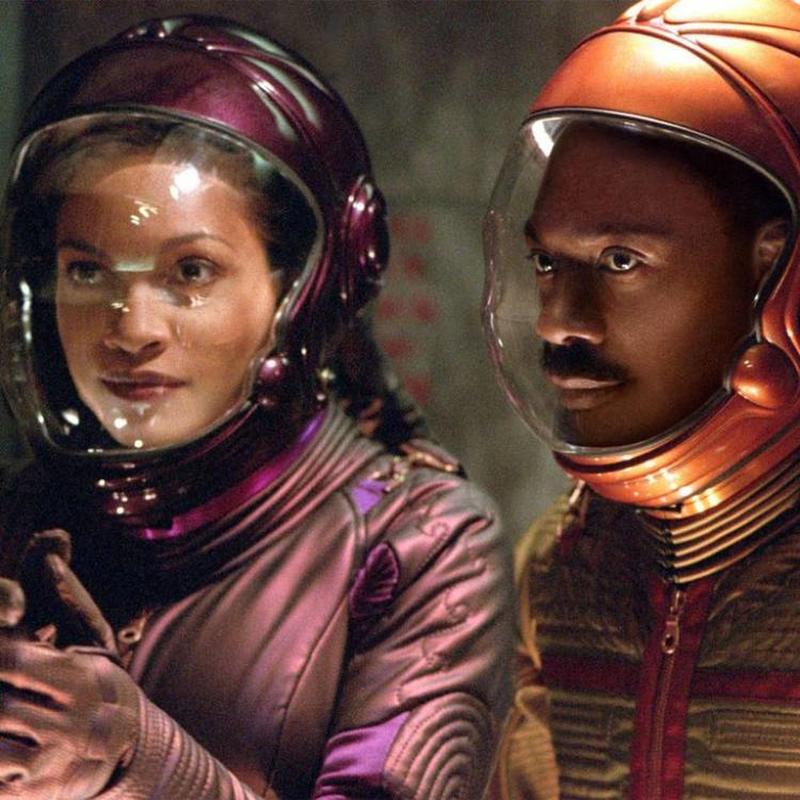
Warner Bros. spared no expense in putting the film together, blowing a massive $100m on the bloated production, which included Murphy playing two roles. When the reviews came in, they read like a death sentence. Nobody could find anything to like about the film, and it closed after taking barely over $7m for a staggering $93m loss. Castle Rock Entertainment and Village Roadshow Pictures - both Warner subsidiaries - were decimated by the failure.
Disney is one of the largest corporations in the world. They're up there with Amazon, Google, and Microsoft as companies that are so large that almost nothing could harm them financially. The disastrous 'Lone Ranger' movie with Johnny Depp gave it a very good try, though. While we most commonly associated Disney with colorful, saccharine-sweet renditions of stories from our childhood, the performance of this box office turkey was anything but a fairytale.
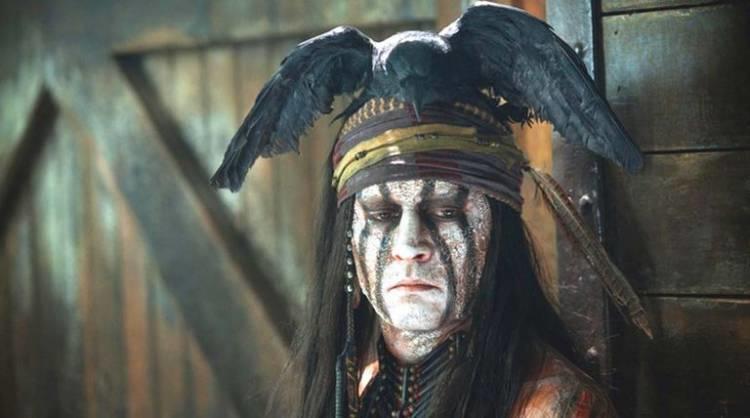
Disney really pushed the boat out with this film, awarding it a $350m budget and confidently predicting that it would be one of the smash-hit movie releases of the year. They were wrong, to the tune of $150m below the budget of the movie. The unexpected disaster shook some people at Disney up so badly that they even considered the temporary closure of the film studio to assess what had gone wrong, and why.
Even though losing $150m on 'The Lone Ranger' was a painful experience for Disney, it would have felt like eating birthday cake compared to what they had to endure from the catastrophic failure of 'John Carter.' The film with the most boring name in movie history unsurprisingly failed to grab the attention of the public, despite being one of the most expensive movies made at the time of its release, with the budget believed to have been higher than $350m.

Somewhat arrogantly, Disney was already well along the road with plans for a sequel when the first film was released - plans that came to a screeching halt when the takings for the first weekend were reported. When you factor in the costs incurred by mapping out the sequel, Disney was forced to declare a write-down of nearly $200m for 'John Carter,' and left questioning themselves as to whether they still understood what their audience wanted from them.
Animated films have been popular for as long as films have existed, but what we mean by the term 'animated film' has changed over the years. There's traditional animation - the kind you'll see in 'Bambi,' and there's computer animation of the type you'll see in 'Frozen.' We associate the DreamWorks studio with computer animation, but they once did both. 'Sinbad: Legend of the Seven Seas' changed their mind.
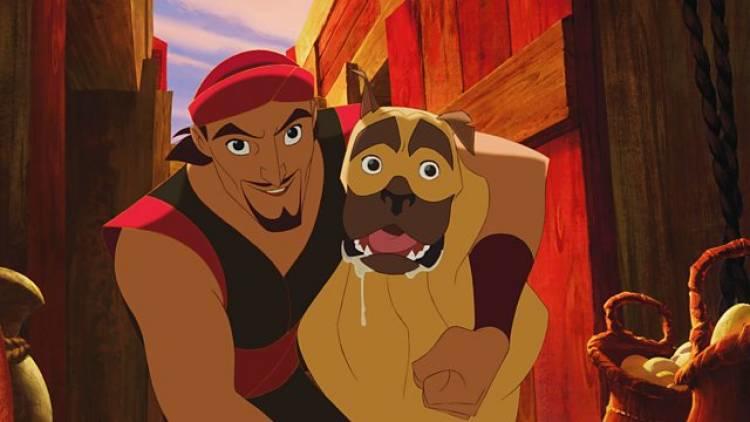
This particular 'Sinbad' film brought in $80m against a budget of $60m, but when you factor in other expenses around the movie, including marketing, it actually translates into a loss. It was one of many such losses DreamWorks incurred during 2003, which saw them finish the year $125m in the red, and having to make drastic changes to their operations going forward. They've never released a traditionally-animated movie since. The only legend we now attach to Sinbad is that he can destroy a movie studio's reputation.
For some reason, everyone has the perception that Superman is the most popular and profitable of all the superheroes. That perception flies in the face of all the available evidence. Superman's record at the box office is patchy at best; 'Superman Returns' failed to excite the public when it was released in 2006 as a comeback attempt, but it was 'Superman IV: The Quest for Peace' that had buried the franchise in the first place years earlier.

By 1987, Christopher Reeve's incarnation of Superman was beginning to look and feel a little dated after three previous films. Despite a budget of $36m, it somehow managed to look cheap, with the special effects coming in for particular criticism. Movie-goers had come to expect a higher standard of presentation, and largely ducked out on coming to see it. It made almost exactly half of its budget back, and The Cannon Group had fired out a film for the last time.